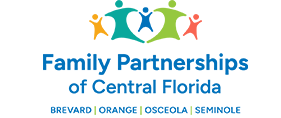A new study released by Families in Society: The Journal of Contemporary Social Services, the premier social work journal published by the Alliance for Strong Families and Communities, provides greater insight into the value of wraparound interventions and their effectiveness in strengthening families and reducing child maltreatment.
The study, “Reducing Risk: Families in Wraparound Intervention,” observed children of families participating in the Brevard C.A.R.E.S (Coordination, Advocacy, Resources, Education and Support) wraparound intervention, launched by Florida-based Brevard Family Partnership, to assess whether these children experienced a reduction of maltreatment after completing the intervention program when compared to children facing similar circumstances whose families did not receive wraparound intervention.
The study found that children linked to families that completed the wraparound intervention program had reduced incidents of maltreatment just six months after the program. In fact, 93 percent of families who participated in the intervention had no verified maltreatment, compared to 30 percent of families who did not participate in the intervention.
“The successful outcomes among the C.A.R.E.S families are directly tied to early engagement and strong inclusive partnerships with youth and families using high fidelity Wraparound care coordination,” says Patricia Nellius, CEO of Brevard Family Partnership. “Wraparound programs greatly enhance systems of care in communities that support child maltreatment prevention.”
Nellius designed, piloted, and implemented the Brevard C.A.R.E.S. wraparound model intervention in 2005 after Brevard Family Partnership replaced the former child welfare operation with a community-based system of care. The wraparound approach was intended to reach families before the stressors they experienced met the threshold of abuse and neglect. The Brevard Family Partnership intervention aims to assist families to identify and develop a system of formal and informal supports within the community and family structures—maintaining that even the most challenged parents or primary caregivers have the potential to make necessary changes.
“The Brevard Family Partnership model is a great example of the principle belief that whenever possible, keeping children in families and providing the appropriate support and intervention is the most effective approach to promoting family stability and strengthening, a belief the Alliance strongly supports,” says Susan Dreyfus, president and CEO of the Alliance for Strong Families and Communities.
Focusing on partnership, community involvement, authentic engagement, and measurement, the Brevard C.A.R.E.S. intervention is directly linked to the Alliance’s signature work, the Commitments of High-Impact Nonprofit Organizations, which provides a framework for nonprofit human-serving organizations to achieve meaningful, lasting impact.
The study authors note that now that the C.A.R.E.S. program has demonstrated effectiveness at six months, more research is needed to better understand the proper amount of treatment, how supports should be organized, and how professionals may need to provide continued support to sustain a family’s skills and progress. New areas of inquiry raised by this study’s results include more in-depth exploration of how the program works, use of pre- and post-assessments to track skills gained through the wraparound intervention, and examination of how these skills affect participants’ behavior over time.
To learn more about the Brevard C.A.R.E.S. intervention and implications for policy and practice, access the full study.
The Alliance for Strong Families and Communities is a national organization dedicated to achieving a vision of a healthy society and strong communities for all children, adults, and families. The Alliance works for transformational change by representing and supporting its network of hundreds of nonprofit human serving organizations across North America as they translate knowledge into best practices that improve their communities. Working with and through its member network on leadership and advocacy, the Alliance strives to achieve high impact by reducing the number of people living in poverty; increasing the number of people with opportunities to live healthy lives; and increasing the number of people with access to educational and employment success. Go to alliance1.org for more information. https://www.alliance1.org/news/wraparound-intervention-proves-effective-strengthening-vulnerable-families








